Samantha Bryant's Blog, page 63
September 12, 2016
#SonofaPitch #5: Simple Acts of Grace
For my regular readers, these are some special posts this week as part of a pitch contest I'm providing feedback for.
For participants, welcome to my blog! I'm happy to host you and excited to see what kinds of stories you've written. Please remember that only the author of this piece and the participating judges are supposed to comment. All other comments will be deleted.
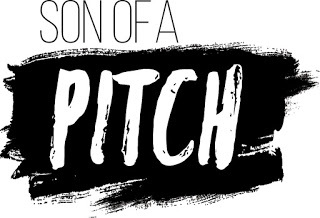 Title: Simple Acts of Grace
Title: Simple Acts of Grace
Age and Genre: Adult, Historical Fiction
Word Count: 80,000
Query:
When a young nurse uncovers horrific abuse at a Nazi baby factory, she saves the children by joining forces with an unlikely ally — an SS officer working covertly for the resistance.
When Allina Strauss arrives at the notorious Nazi baby factory called Hochland Home, she has nothing left to live for. SS officers have murdered nearly everyone she loves and killed her innocence. The only thing standing between Allina and death is a set of forged papers that hide a terrifying secret: Her mother was Jewish, making her a half-bloodMischling.
Traumatized and grieving, Allina’s despair grows as she becomes both participant and witness to Heinrich Himmler’s ruthless eugenics program. Girls of pure blood mate with SS officers to breed offspring for the Führer, while nurses like Allina must follow strict protocols and treat babies like inventory, without affection. Hundreds of Hochland Home's neglected, disabled children wind up in experimental hospitals, slated for execution.
But grace often appears at the most hopeless moments. When Gruppenführer Karl von Strassberg catches Allina cuddling a baby, she’s afraid she’ll be punished for breaking house rules. Instead, Karl is intrigued by her gentle approach and seeks out her company. He even secures Himmler’s approval for a rehabilitation plan for the children.When Karl learns Allina is half Jewish, he vows to protect her and shares a secret that changes both their destinies: While outwardly loyal to the Reich, Karl works in secret to smuggle Jewish children to England. As their shared work brings them closer and friendship deepens into love, Karl and Allina are forced to live double lives amid the growing threat of war. And when Allina becomes pregnant, the couple faces a harrowing decision: Will they continue to risk their lives, and the life of their unborn child, to transport more children to safety?
First 250 words:
Evil rarely falls like a hammer, Uncle Dieter always warned, for at its core, evil is a cowardly thing. Evil lives in the shadows. It sneaks around, like a pickpocket. We must be vigilant, child. Even the smallest act of evil can destroy.
Allina accepted her uncle’s words as truth, because he was the smartest, kindest man in her world. He was the only father she’d ever known.
Three years ago, on the day the Führer became Chancellor, Allina rushed home from school to find her aunt and uncle at the kitchen table, weeping. Shocked silent, she’d hesitated in the doorway while their sobs filled the room. Her aunt and uncle had wiped their tears and beckoned her inside with smiles, but Allina wasn’t fooled. Uncle hugged her so tightly her ribs had burned, and Auntie’s hands trembled when she poured Allina a glass of milk. She’d realized the truth that day, at thirteen: Adolf Hitler was the evil Uncle warned her about.
Allina knew evil existed. But she never thought she’d recognize it in the face of a friend.
“You’d have those filthy Jews here? Why?” Fritz’s voice was high and sharp, like the crack of a horse whip. Sitting up in the grass, he made a show of brushing bits of leaves off his grey trousers and smoothing the untidy strands of his blond, razored hair.
Allina’s cheeks prickled with alarm. His obnoxious jokes usually made her sick to her stomach, but Fritz had never been so vicious.
For participants, welcome to my blog! I'm happy to host you and excited to see what kinds of stories you've written. Please remember that only the author of this piece and the participating judges are supposed to comment. All other comments will be deleted.
 Title: Simple Acts of Grace
Title: Simple Acts of GraceAge and Genre: Adult, Historical Fiction
Word Count: 80,000
Query:
When a young nurse uncovers horrific abuse at a Nazi baby factory, she saves the children by joining forces with an unlikely ally — an SS officer working covertly for the resistance.
When Allina Strauss arrives at the notorious Nazi baby factory called Hochland Home, she has nothing left to live for. SS officers have murdered nearly everyone she loves and killed her innocence. The only thing standing between Allina and death is a set of forged papers that hide a terrifying secret: Her mother was Jewish, making her a half-bloodMischling.
Traumatized and grieving, Allina’s despair grows as she becomes both participant and witness to Heinrich Himmler’s ruthless eugenics program. Girls of pure blood mate with SS officers to breed offspring for the Führer, while nurses like Allina must follow strict protocols and treat babies like inventory, without affection. Hundreds of Hochland Home's neglected, disabled children wind up in experimental hospitals, slated for execution.
But grace often appears at the most hopeless moments. When Gruppenführer Karl von Strassberg catches Allina cuddling a baby, she’s afraid she’ll be punished for breaking house rules. Instead, Karl is intrigued by her gentle approach and seeks out her company. He even secures Himmler’s approval for a rehabilitation plan for the children.When Karl learns Allina is half Jewish, he vows to protect her and shares a secret that changes both their destinies: While outwardly loyal to the Reich, Karl works in secret to smuggle Jewish children to England. As their shared work brings them closer and friendship deepens into love, Karl and Allina are forced to live double lives amid the growing threat of war. And when Allina becomes pregnant, the couple faces a harrowing decision: Will they continue to risk their lives, and the life of their unborn child, to transport more children to safety?
First 250 words:
Evil rarely falls like a hammer, Uncle Dieter always warned, for at its core, evil is a cowardly thing. Evil lives in the shadows. It sneaks around, like a pickpocket. We must be vigilant, child. Even the smallest act of evil can destroy.
Allina accepted her uncle’s words as truth, because he was the smartest, kindest man in her world. He was the only father she’d ever known.
Three years ago, on the day the Führer became Chancellor, Allina rushed home from school to find her aunt and uncle at the kitchen table, weeping. Shocked silent, she’d hesitated in the doorway while their sobs filled the room. Her aunt and uncle had wiped their tears and beckoned her inside with smiles, but Allina wasn’t fooled. Uncle hugged her so tightly her ribs had burned, and Auntie’s hands trembled when she poured Allina a glass of milk. She’d realized the truth that day, at thirteen: Adolf Hitler was the evil Uncle warned her about.
Allina knew evil existed. But she never thought she’d recognize it in the face of a friend.
“You’d have those filthy Jews here? Why?” Fritz’s voice was high and sharp, like the crack of a horse whip. Sitting up in the grass, he made a show of brushing bits of leaves off his grey trousers and smoothing the untidy strands of his blond, razored hair.
Allina’s cheeks prickled with alarm. His obnoxious jokes usually made her sick to her stomach, but Fritz had never been so vicious.
Published on September 12, 2016 03:05
#SonofaPitch #4: Talisman
For my regular readers, these are some special posts this week as part of a pitch contest I'm providing feedback for.
For participants, welcome to my blog! I'm happy to host you and excited to see what kinds of stories you've written. Please remember that only the author of this piece and the participating judges are supposed to comment. All other comments will be deleted.

Title: Talisman
Category and Genre: Adult/Fantasy
Word Count: 90,000
Query:
In Talisman, ordinary people are drawn to ordinary objects with the power to fill the holes in their lives. A plain young woman discovers a mirror that transforms her into whatever person she wants to be. A hopeless gambler finds a lucky coin. A blind girl obtains glasses that enable her to see. The main protagonist, Adam—a millennial stuck in a mind-numbing job, with no girl, no prospects, no purpose—finds a key that enables him to summon untapped willpower and envision possibility. So of course he has no idea what to do with it. That’s when Adam meets Delilah and is drawn into the middle of a secret war between the Order, which believes the talismans are the key to natural selection, and the Following, which believes the talismans herald the Second Coming and that Adam may be the martyr for whom they’ve been waiting. So Adam must find his true purpose, decide whether he can trust Delilah, and avoid becoming a casualty.
First 250 Words:
A darkness without end, she had been born without sight. She likes to think that the fleeting memory of being born into the world, a world of light and movement, was real. Her doctors had ignored such reminisces.
If true, no matter how unlikely, it is unimportant now. What is more cruel, a child who could once see or one who would never know the loss? Such questions were philosophical.
She likes to imagine red. It seems pure. Is it like "sharp" or "hot"? Is it "blaring" or "piercing?"
There are those who muse that one person's red could look blue to another and vice versa. The subject and the name would be the same, the experience divergent. Who can tell?
Some brains were wired differently. They could smell green or see sweet. It was all a matter of perception, not worse, just different. She had consoled herself with such thoughts.
The doctors had given her mother too much oxygen or perhaps it was the nurses. They had not heeded the monitors. She had been a newborn. Her mother died giving birth to her. Everyone said there was nothing that could have been done.
She did not accept that. Her attorney had won compensation. She got A's studying Braille high school text books. Some things just happen. Some things people make happen.
The apartment building is quiet but not silent. The floors creak. Someone is moving about behind a closed door.
For participants, welcome to my blog! I'm happy to host you and excited to see what kinds of stories you've written. Please remember that only the author of this piece and the participating judges are supposed to comment. All other comments will be deleted.

Title: Talisman
Category and Genre: Adult/Fantasy
Word Count: 90,000
Query:
In Talisman, ordinary people are drawn to ordinary objects with the power to fill the holes in their lives. A plain young woman discovers a mirror that transforms her into whatever person she wants to be. A hopeless gambler finds a lucky coin. A blind girl obtains glasses that enable her to see. The main protagonist, Adam—a millennial stuck in a mind-numbing job, with no girl, no prospects, no purpose—finds a key that enables him to summon untapped willpower and envision possibility. So of course he has no idea what to do with it. That’s when Adam meets Delilah and is drawn into the middle of a secret war between the Order, which believes the talismans are the key to natural selection, and the Following, which believes the talismans herald the Second Coming and that Adam may be the martyr for whom they’ve been waiting. So Adam must find his true purpose, decide whether he can trust Delilah, and avoid becoming a casualty.
First 250 Words:
A darkness without end, she had been born without sight. She likes to think that the fleeting memory of being born into the world, a world of light and movement, was real. Her doctors had ignored such reminisces.
If true, no matter how unlikely, it is unimportant now. What is more cruel, a child who could once see or one who would never know the loss? Such questions were philosophical.
She likes to imagine red. It seems pure. Is it like "sharp" or "hot"? Is it "blaring" or "piercing?"
There are those who muse that one person's red could look blue to another and vice versa. The subject and the name would be the same, the experience divergent. Who can tell?
Some brains were wired differently. They could smell green or see sweet. It was all a matter of perception, not worse, just different. She had consoled herself with such thoughts.
The doctors had given her mother too much oxygen or perhaps it was the nurses. They had not heeded the monitors. She had been a newborn. Her mother died giving birth to her. Everyone said there was nothing that could have been done.
She did not accept that. Her attorney had won compensation. She got A's studying Braille high school text books. Some things just happen. Some things people make happen.
The apartment building is quiet but not silent. The floors creak. Someone is moving about behind a closed door.
Published on September 12, 2016 03:03
#SonofaPitch #3: Chained
For my regular readers, these are some special posts this week as part of a pitch contest I'm providing feedback for.
For participants, welcome to my blog! I'm happy to host you and excited to see what kinds of stories you've written. Please remember that only the author of this piece and the participating judges are supposed to comment. All other comments will be deleted.
 Title: CHAINED
Title: CHAINED
Age and Genre: Adult Fantasy
Word Count: 118k
Query:
When slavers steal her from her village in the wastes of the southern continent, Astara doesn’t expect to emerge from a horrific ritual with the power to accomplish unexplainable feats. But being cursed with magic also bestows her with another unwelcomed gift: a lifetime of enslavement.
Wishing to return to her family, Astara is instead sold to a pair of cosmopolitan, ladder-climbing nobles who already own a famous dancer, Dahlia Vessa. But Dahlia is not who she seems to be: she’s a double agent, spying on her masters for a clandestine faction called the Nameless Circle.
The Circle fights to free those branded with magic, but they’re not the only ones set on freeing the city’s slaves. Astara and Dahlia are soon caught in the middle of an underground war between the Circle, and another faction who seek to exterminate those without magic.
The factions soon discover the two women are a pairing of Arcana SiFayn, an incredibly rare type of mage who combine powers to cast devastatingly strong magic. With control of either one of them, the Circle and Revs believe they would have the power to change the tide of the war against the masters to their subversive objectives.
But after Dahlia is arrested for murder due to the wild powers of their connection, Astara must find a way to free her friend before she’s executed for her alleged crimes, or worse: the Revenants convince her to join them in their genocidal crusade.
First 250 words:
Ministers escorted a line of captives across the length of the square training area, cruel cold cobblestones under their bare feet. At the end of the queue, shivering and teeth chattering, a young woman followed, shuffling her steps before crossing an open door’s threshold and entering a crumbling wood building. Holding her chained wrists against her chest, she stared at the floor, the pale morning light casting the Ministers’ shadows across the planked boards like mythical phantoms ready to strike. She startled when the door clapped closed behind her.
Nearly all the Ministers Astara encountered possessed magic–powers they could use to do things she had only dreamed of before slavers kidnapped her from her village on the southern continent. Lighting. Fire. Throwing objects without touching them. Slamming a door without so much as lifting a finger was hardly the most impressive feat, but she still didn’t understand how any of them did it. Her people didn’t have magic on the Mountain; in all her twenty-two years of life on the Great Southern Plains, in the region known as the “Dustbin” to the local Rykonians, she’d never seen anything like it.
In front of her, the other captives continued to walk in sync further into the building, and Astara’s chains attached to them yanked her forward. She stumbled and wobbled, her vision blurring, but managed to stay upright, feeling like she’d been awake for days on a hunt. Maybe she’d not quite woken up, her body sluggish and lethargic.
For participants, welcome to my blog! I'm happy to host you and excited to see what kinds of stories you've written. Please remember that only the author of this piece and the participating judges are supposed to comment. All other comments will be deleted.
 Title: CHAINED
Title: CHAINEDAge and Genre: Adult Fantasy
Word Count: 118k
Query:
When slavers steal her from her village in the wastes of the southern continent, Astara doesn’t expect to emerge from a horrific ritual with the power to accomplish unexplainable feats. But being cursed with magic also bestows her with another unwelcomed gift: a lifetime of enslavement.
Wishing to return to her family, Astara is instead sold to a pair of cosmopolitan, ladder-climbing nobles who already own a famous dancer, Dahlia Vessa. But Dahlia is not who she seems to be: she’s a double agent, spying on her masters for a clandestine faction called the Nameless Circle.
The Circle fights to free those branded with magic, but they’re not the only ones set on freeing the city’s slaves. Astara and Dahlia are soon caught in the middle of an underground war between the Circle, and another faction who seek to exterminate those without magic.
The factions soon discover the two women are a pairing of Arcana SiFayn, an incredibly rare type of mage who combine powers to cast devastatingly strong magic. With control of either one of them, the Circle and Revs believe they would have the power to change the tide of the war against the masters to their subversive objectives.
But after Dahlia is arrested for murder due to the wild powers of their connection, Astara must find a way to free her friend before she’s executed for her alleged crimes, or worse: the Revenants convince her to join them in their genocidal crusade.
First 250 words:
Ministers escorted a line of captives across the length of the square training area, cruel cold cobblestones under their bare feet. At the end of the queue, shivering and teeth chattering, a young woman followed, shuffling her steps before crossing an open door’s threshold and entering a crumbling wood building. Holding her chained wrists against her chest, she stared at the floor, the pale morning light casting the Ministers’ shadows across the planked boards like mythical phantoms ready to strike. She startled when the door clapped closed behind her.
Nearly all the Ministers Astara encountered possessed magic–powers they could use to do things she had only dreamed of before slavers kidnapped her from her village on the southern continent. Lighting. Fire. Throwing objects without touching them. Slamming a door without so much as lifting a finger was hardly the most impressive feat, but she still didn’t understand how any of them did it. Her people didn’t have magic on the Mountain; in all her twenty-two years of life on the Great Southern Plains, in the region known as the “Dustbin” to the local Rykonians, she’d never seen anything like it.
In front of her, the other captives continued to walk in sync further into the building, and Astara’s chains attached to them yanked her forward. She stumbled and wobbled, her vision blurring, but managed to stay upright, feeling like she’d been awake for days on a hunt. Maybe she’d not quite woken up, her body sluggish and lethargic.
Published on September 12, 2016 03:02
#SonofaPitch #2: Forge Bay
For my regular readers, these are some special posts this week as part of a pitch contest I'm providing feedback for.
For participants, welcome to my blog! I'm happy to host you and excited to see what kinds of stories you've written. Please remember that only the author of this piece and the participating judges are supposed to comment. All other comments will be deleted.

Title: FORGE BAY
Category and Genre: Adult Fantasy
Word Count: 108,000
Query:
Jona is a young warrior, bonded as concubine to a powerful kin chief she despises. Forbidden to wield her spear, she rails against a life trapped behind the loom, but cannot leave if she hopes to preserve the final shred of her family's prestige.
When one of the chief’s fighters is killed in a failed ambush, his honorless kin captures the man they deem guilty. Roused by memory of her brother’s unlawful death, Jona attempts to free the captive before he faces retribution. After botching the rescue, she inadvertently opens a Farstep, an entryway to a lost realm enabling her to travel anywhere in the world within moments. Jona must decide whether she can trust the stranger beside her as she chooses between the unknown dangers beyond the Farstep, or the swift wrath of the kin she’s desperate to leave behind.
Meanwhile, Age is a reluctant prodigy of the people who maintain a tenuous link to the little magic left in the world. His unmatched ability to control the essences of nature should be a boon. To Age, his talents only mire him in suffocating responsibilities.
When a strange new power beckons to him in a way he can’t ignore, his instincts urge him to investigate. Eager to spy on the Farstep and avoid the awful sacrifice his people demand of him, Age uses his magic to infiltrate the kin. But he never expects to befriend Jona, and to regret the lie that has her believing he’s someone he’s not. Caught between conflicting loyalties, Age faces an impossible choice: to serve his people, or save his friend.
First 250 Words:
The band of raiders returned at sunset.
Jona sensed the glimmer of a dozen lives in her mind as they neared the seaside farm on horseback. She stilled the shuttle of the loom she shared with Elva, and lifted a hand to block the light from the setting sun so she could watch the raiders’ triumphant return through the weaving room’s narrow window. Sunlight speared defiantly across the plains, threatening to dazzle her vision—but wasn’t bright enough to wash out the thrashing profile of a person tied behind one of the mounts, being dragged through the grass until the riders dismounted in the yard. And atop that horse—
It couldn’t be.
She lunged, kicking aside her cushions to reach the open window. Golden sunlight glinted off motes of grit churned up by the people and horses milling in the yard a stone’s throw away. Coughing, Jona waved away the dust as she pulled herself into the overgrown window well.
The answer to her prayers rested casually over the rump of the nearest horse.
“Jona?” Elva’s voice, empty of its normal laughter, nearly drowned within the roaring of Jona’s own heartbeat as it echoed in her ears. “What’s wrong?”
“Our raiders are back,” Jona said, hardly paying attention to what she was saying. There was a man lying in the grass, covered in dirt and straw, trying to draw himself up to his knees. As he stirred, one of the raiders turned and booted him in the ribs.
For participants, welcome to my blog! I'm happy to host you and excited to see what kinds of stories you've written. Please remember that only the author of this piece and the participating judges are supposed to comment. All other comments will be deleted.

Title: FORGE BAY
Category and Genre: Adult Fantasy
Word Count: 108,000
Query:
Jona is a young warrior, bonded as concubine to a powerful kin chief she despises. Forbidden to wield her spear, she rails against a life trapped behind the loom, but cannot leave if she hopes to preserve the final shred of her family's prestige.
When one of the chief’s fighters is killed in a failed ambush, his honorless kin captures the man they deem guilty. Roused by memory of her brother’s unlawful death, Jona attempts to free the captive before he faces retribution. After botching the rescue, she inadvertently opens a Farstep, an entryway to a lost realm enabling her to travel anywhere in the world within moments. Jona must decide whether she can trust the stranger beside her as she chooses between the unknown dangers beyond the Farstep, or the swift wrath of the kin she’s desperate to leave behind.
Meanwhile, Age is a reluctant prodigy of the people who maintain a tenuous link to the little magic left in the world. His unmatched ability to control the essences of nature should be a boon. To Age, his talents only mire him in suffocating responsibilities.
When a strange new power beckons to him in a way he can’t ignore, his instincts urge him to investigate. Eager to spy on the Farstep and avoid the awful sacrifice his people demand of him, Age uses his magic to infiltrate the kin. But he never expects to befriend Jona, and to regret the lie that has her believing he’s someone he’s not. Caught between conflicting loyalties, Age faces an impossible choice: to serve his people, or save his friend.
First 250 Words:
The band of raiders returned at sunset.
Jona sensed the glimmer of a dozen lives in her mind as they neared the seaside farm on horseback. She stilled the shuttle of the loom she shared with Elva, and lifted a hand to block the light from the setting sun so she could watch the raiders’ triumphant return through the weaving room’s narrow window. Sunlight speared defiantly across the plains, threatening to dazzle her vision—but wasn’t bright enough to wash out the thrashing profile of a person tied behind one of the mounts, being dragged through the grass until the riders dismounted in the yard. And atop that horse—
It couldn’t be.
She lunged, kicking aside her cushions to reach the open window. Golden sunlight glinted off motes of grit churned up by the people and horses milling in the yard a stone’s throw away. Coughing, Jona waved away the dust as she pulled herself into the overgrown window well.
The answer to her prayers rested casually over the rump of the nearest horse.
“Jona?” Elva’s voice, empty of its normal laughter, nearly drowned within the roaring of Jona’s own heartbeat as it echoed in her ears. “What’s wrong?”
“Our raiders are back,” Jona said, hardly paying attention to what she was saying. There was a man lying in the grass, covered in dirt and straw, trying to draw himself up to his knees. As he stirred, one of the raiders turned and booted him in the ribs.
Published on September 12, 2016 03:01
#SonofaPitch #1: Traditor
For my regular readers, these are some special posts this week as part of a pitch contest I'm providing feedback for.
For participants, welcome to my blog! I'm happy to host you and excited to see what kinds of stories you've written. Please remember that only the author of this piece and the participating judges are supposed to comment. All other comments will be deleted.

Title: Traditor
Category and Genre: Adult Science Fiction
Word Count: 130,000
Query:
When Mer York meets a charming man named Bryn in the park, she doesn’t suspect that he’s actually a civil disobedient—a Dissenter—on the run from the law. When government agents known as Company Men link her to him, Mer is thrust into a world of secret organizations in which her allegiance could mean the difference between freedom and subjugation not only for her, but for the entire country.
Traditor is a tale of adventure and romance in a society where government surveillance has grown out of control. The novel follows Mer’s transformation from a dutiful government worker to a Dissenter. Although initially intending to sabotage Bryn’s plans, Mer begins to reevaluate her beliefs when she discovers that the chip he carries was designed by Company Men to control people’s minds. Mer decides to turn traitor and fight to keep the chip safe until its existence can be made known. At the end of many adventures Bryn and Mer seem to be in the clear—until a comrade’s death leads to betrayal by one of their own.
First 250 Words:
She was never sure what woke her. Maybe there was a noise, something she couldn’t remember when she was fully awake. Maybe it was a sort of sixth sense, the feeling that lets you know you’re being watched from behind. Whatever it was, Mer opened her eyes just as the heavy moon hid its face behind a cloudbank.
She lay immobile for a moment. She often woke before her alarm, a product of years of conditioning, years of dreading the moment the buzzer would go off. Normally it was two or three minutes before, however. Judging from the darkness and the dead calm of her neighborhood Mer thought it must be much earlier: two at the very latest.
She should just go back to sleep. Maybe she ought to get up and take a pill? No, no need. Mer could feel fatigue pulling her under.
Her eyes had drifted shut, the wisps of dreams just beginning when she heard the creak.
Her first instinct was to sit up, but Mer forced herself to lie still. It was a neighbor, she told herself. Someone moving around their house downstairs.
There was another, softer this time. It’s the floorboards. This isn’t exactly a new place. Houses get old, houses groan. It’s nothing. Go back to bed.
Then she heard the creak again.
For participants, welcome to my blog! I'm happy to host you and excited to see what kinds of stories you've written. Please remember that only the author of this piece and the participating judges are supposed to comment. All other comments will be deleted.

Title: Traditor
Category and Genre: Adult Science Fiction
Word Count: 130,000
Query:
When Mer York meets a charming man named Bryn in the park, she doesn’t suspect that he’s actually a civil disobedient—a Dissenter—on the run from the law. When government agents known as Company Men link her to him, Mer is thrust into a world of secret organizations in which her allegiance could mean the difference between freedom and subjugation not only for her, but for the entire country.
Traditor is a tale of adventure and romance in a society where government surveillance has grown out of control. The novel follows Mer’s transformation from a dutiful government worker to a Dissenter. Although initially intending to sabotage Bryn’s plans, Mer begins to reevaluate her beliefs when she discovers that the chip he carries was designed by Company Men to control people’s minds. Mer decides to turn traitor and fight to keep the chip safe until its existence can be made known. At the end of many adventures Bryn and Mer seem to be in the clear—until a comrade’s death leads to betrayal by one of their own.
First 250 Words:
She was never sure what woke her. Maybe there was a noise, something she couldn’t remember when she was fully awake. Maybe it was a sort of sixth sense, the feeling that lets you know you’re being watched from behind. Whatever it was, Mer opened her eyes just as the heavy moon hid its face behind a cloudbank.
She lay immobile for a moment. She often woke before her alarm, a product of years of conditioning, years of dreading the moment the buzzer would go off. Normally it was two or three minutes before, however. Judging from the darkness and the dead calm of her neighborhood Mer thought it must be much earlier: two at the very latest.
She should just go back to sleep. Maybe she ought to get up and take a pill? No, no need. Mer could feel fatigue pulling her under.
Her eyes had drifted shut, the wisps of dreams just beginning when she heard the creak.
Her first instinct was to sit up, but Mer forced herself to lie still. It was a neighbor, she told herself. Someone moving around their house downstairs.
There was another, softer this time. It’s the floorboards. This isn’t exactly a new place. Houses get old, houses groan. It’s nothing. Go back to bed.
Then she heard the creak again.
Published on September 12, 2016 03:00
September 7, 2016
#IWSG: Time for writing
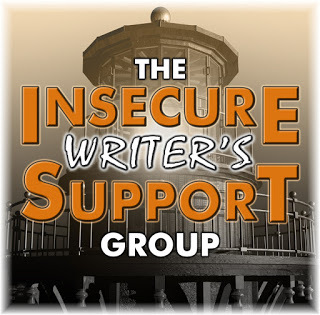
How do you find the time to write in your busy day?
That is the $64,000 question, isn't it? The truth is that I don't "find the time." I FIGHT for it. I wrest it from the jaws of dangerous beasts with my bare hands. I hack it from the calendar with a machete. I steal it, then run away and gobble it up in secret.
Well, maybe it's not that dramatic, but it is a struggle. I have a day job, a family, a husband, a dog, a house…all things that covet and demand my time and attention. They're all also things I love and value, that I *want* to spend time on and with, unlike the housework and grocery shopping, which I'm happy to push aside for writing.
But I do have a daily writing habit (I'm a Magic Spreadsheet devotee) and it HAS made a huge difference in my productivity and happiness. So, here's how I got there:
1. Household meeting: If you share your living space with others humans, you're going to need to have a direct talk about "writing time." At La Casa Bryant, this amounted to a family meeting where I announced my intentions to write every day and told them I would need support in the form of "alone time" to do that. I was tired of packing up and going to coffee shops and libraries and wanted to do my writing at home.
We planned together to figure out when would be the most workable time for us. That ended up being 8:30 at night at first, with my husband and older daughter agreeing to deal with the younger daughter's needs if any arose after her 8:00 bedtime. It wasn't ideal for me, as I was often physically and mentally weary by then, but it was better than nothing and I started writing at least 250 words a day (now I'm up to 800ish on school days and 2000 on non-school days most of the time).
 Disclaimer: Not my actual sink, though it is sometimes this bad.
Disclaimer: Not my actual sink, though it is sometimes this bad. 2. Work space: I wanted to be able to write at home, but that was hard at first. At home, you have to discipline yourself to ignore all the other pulls of home. I'm pretty good at writing among chaos and noise of certain sorts, so it works for me most of the time, and when it doesn't, I shut myself in the bedroom where I can close the door on everyone else. There's no home office space available for me without moving, so I adapted.
For a while, I had to go out. But I had less control of my environment in coffeeshops and libraries and, even with headphones, had interruptions and pulls of my attention that cost me writing time. After all, I can't insist that other coffee shop patrons talk more quietly or sit further away like I can with my family. Plus I had to spend time getting there and back instead of just popping open the laptop and going.
3. Mental space: This part was hard for me. I'm a mom and a middle school teacher, so generally that means my own needs and wants are very very last on the list of priorities. So, step one for me was to convince myself that it was okay to insist on having this time. I couldn't utilize my writing time well if my head was full of guilt and to-do lists, so I had to learn to set that aside, at least for an hour at a time.
Now I know I'm a better wife and mother when I get my writing time because I get that release and don't resent my family for keeping me from it. In fact, if I'm cranky, they might recommend that I "go write for a while."
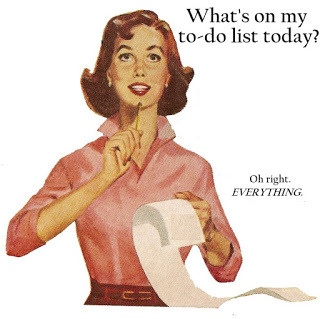
4. Sacrifices: There are only so many hours in the day. So, if you're going to add regular writing time, you probably have to give something up. For me, that was television. I don't like it that much anyway, so it wasn't too painful. My own stories do more for my soul, even while they are beating me up in the process. I save up television time for summer vacation and then Netflix to my heart's content (I had almost eight weeks this summer--it's not the nice long break it used to be when I started teaching, but I'm still glad to have it). But that gave me back 1-2 hours a day to use in other ways. You'd be surprised what I can do with 1-2 hours a day.
So, there's my story. What's yours? How do you arrange your life to leave room for writing or other creative pursuits?
____________________________________________
If you're not already following #IWSG (Insecure Writer's Support Group), you should really check it out. The monthly blog hop is a panoply of insight into the writing life at all stages of hobby and career. Search the hashtag in your favorite social media venue and you'll find something interesting on the first Wednesday of every month.
Published on September 07, 2016 03:00
August 31, 2016
1,000 days and Counting: Don't Break the Chain!
A couple of months ago I hit a major milestone in my writing life: I hit my one-thousandth day in a row of writing. I've written before about the Magic Spreadsheet, back when I first started using it in 2013, and later that same year when I was clocking along at 500 words a day. Now that I'm more than 1,000 days and 1,000,000 words in, it seems like a good time to think about this tool and how/why it works so well for me.
In the history of my writing life, starting when I was a child and continuing until I was 42 years old, I started hundreds of projects and never finished a one. I'd write until I hit something that stopped me (either within the story, or in my life)…then I'd stop. When I came back, I always started something new.

That's fine, if you want to write just for the enjoyment of writing. But I wanted to *be* a writer, with books for sale in bookstores. Maybe even make my living at it someday. You can't do that on unfinished work.
People are motivated by different things. I honestly didn't expect the Magic Spreadsheet to be as effective for me as it has been. After all, I've tried point systems and gamifications of various sorts for other aspects of my life (exercise, chores, etc.) and it only works for a little while. They usually feel artificial and constricting to me--but this one was different.
I don't really care about my number of points or my rankings against other writers that much (Okay, maybe I do check to make sure that I'm ahead of Chad in points, since he'll always be ahead of me on number of days).

But I have a chain--a chain of 1,066 days as I write this. And it's maintaining that chain that has me writing every day, even when life is busy and even when I feel terrible, even when the children are sick and the Internet is down, even when I'm on vacation or have to do my writing on the mom couch at lessons. The longer the chain of days written in a row grows, the less likely it becomes that I will break it. I'll cut myself the slack to make a weaker link on some days (only writing 250 words, the minimum), but mostly I write somewhere between 800 and 4,000 words a day now, and that adds up fast.
Now, that explains why I write every day, but not why it helped me finish things. That, I think is physics: momentum in particular. Momentum fed by sheer stubbornness.
If I'm not allowed to drop a project (because that would break the chain!), then I have to find a way to move forward in it, thinking my way out of corners I'd trapped myself in, digging my way out of holes I'd fallen into. I have to find a way or I'll break the chain, you see.
 It's been freeing in my writing process, too because I'll let myself write something I'm not sure is going to be right. Wanting to get it "right" was part of what would stop me in the past--I wouldn't write it until I was sure I knew where it was going. Now, I'll write a scene three different ways to see which is better. They all go into the word count, and I'll choose the right one (or combine them, or scrap them all and try again) in the final version. Once I got to "the end" for the first time, I was able to trust in the process in a way I never had before.
It's been freeing in my writing process, too because I'll let myself write something I'm not sure is going to be right. Wanting to get it "right" was part of what would stop me in the past--I wouldn't write it until I was sure I knew where it was going. Now, I'll write a scene three different ways to see which is better. They all go into the word count, and I'll choose the right one (or combine them, or scrap them all and try again) in the final version. Once I got to "the end" for the first time, I was able to trust in the process in a way I never had before.
So, how about you? What works for you to keep moving forward when you hit blocks in your endeavors? Does tracking help? Or does it make you feel trapped? Would love to hear your stories in the comments.
In the history of my writing life, starting when I was a child and continuing until I was 42 years old, I started hundreds of projects and never finished a one. I'd write until I hit something that stopped me (either within the story, or in my life)…then I'd stop. When I came back, I always started something new.

That's fine, if you want to write just for the enjoyment of writing. But I wanted to *be* a writer, with books for sale in bookstores. Maybe even make my living at it someday. You can't do that on unfinished work.
People are motivated by different things. I honestly didn't expect the Magic Spreadsheet to be as effective for me as it has been. After all, I've tried point systems and gamifications of various sorts for other aspects of my life (exercise, chores, etc.) and it only works for a little while. They usually feel artificial and constricting to me--but this one was different.
I don't really care about my number of points or my rankings against other writers that much (Okay, maybe I do check to make sure that I'm ahead of Chad in points, since he'll always be ahead of me on number of days).

But I have a chain--a chain of 1,066 days as I write this. And it's maintaining that chain that has me writing every day, even when life is busy and even when I feel terrible, even when the children are sick and the Internet is down, even when I'm on vacation or have to do my writing on the mom couch at lessons. The longer the chain of days written in a row grows, the less likely it becomes that I will break it. I'll cut myself the slack to make a weaker link on some days (only writing 250 words, the minimum), but mostly I write somewhere between 800 and 4,000 words a day now, and that adds up fast.
Now, that explains why I write every day, but not why it helped me finish things. That, I think is physics: momentum in particular. Momentum fed by sheer stubbornness.
If I'm not allowed to drop a project (because that would break the chain!), then I have to find a way to move forward in it, thinking my way out of corners I'd trapped myself in, digging my way out of holes I'd fallen into. I have to find a way or I'll break the chain, you see.
 It's been freeing in my writing process, too because I'll let myself write something I'm not sure is going to be right. Wanting to get it "right" was part of what would stop me in the past--I wouldn't write it until I was sure I knew where it was going. Now, I'll write a scene three different ways to see which is better. They all go into the word count, and I'll choose the right one (or combine them, or scrap them all and try again) in the final version. Once I got to "the end" for the first time, I was able to trust in the process in a way I never had before.
It's been freeing in my writing process, too because I'll let myself write something I'm not sure is going to be right. Wanting to get it "right" was part of what would stop me in the past--I wouldn't write it until I was sure I knew where it was going. Now, I'll write a scene three different ways to see which is better. They all go into the word count, and I'll choose the right one (or combine them, or scrap them all and try again) in the final version. Once I got to "the end" for the first time, I was able to trust in the process in a way I never had before.So, how about you? What works for you to keep moving forward when you hit blocks in your endeavors? Does tracking help? Or does it make you feel trapped? Would love to hear your stories in the comments.
Published on August 31, 2016 03:00
August 24, 2016
What to Drink From in the Morning
My teaching life is about to step up into full gear again. I'm in teacher workdays this week. They are interesting days with a range of meetings (from rage-inducing and time-wasting to thoughtful and useful), intermixed with far too little time left unscheduled and usable for classroom organization and lesson planning. I miss the days when they just let teachers work on teacher work days.
On Monday, the kids are back.
Something I'm trying this year is getting up earlier and giving myself a positive, well-paced morning to lead into the hectic melee we call the school day. This is challenging. Even after twenty years of teaching, I am not a morning person. The husband and I are trying morning yoga practice and I am trying breakfast.
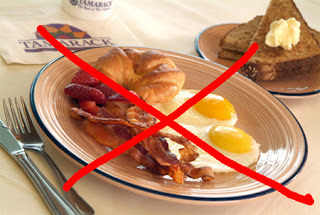
I'm not a breakfast eater, generally, though I know that it is generally considered a good thing to do for your health and wellbeing. Food is unappealing to me first thing when I wake. And traditional breakfast foods (cereal, milk, yogurt, toast, eggs, etc.) are even less so. It's a little better if I don't eat breakfast foods. Leftover supper warmed up is something I'm trying. Protein heavy. I'm giving it a go, but I'm not a fan.
I am a fan of the hot drink varieties of caffeine though: coffee and tea. Especially tea. And I know that the experience is enhanced when you have the right mug to drink it out of. So, I'm mug shopping--in my own cabinets because I'm a teacher in North Carolina (that means I'm chronically broke because they pay peanuts here).
There are a few different things that make a mug perfect.
First, there's the weight. The mug should have some heft, so that you don't tip it over by just because you flicked your hand awkwardly reaching for the blueberries. But it can't be too heavy, where you end up settling it too heavily on the table and sloshing the liquid heaven onto your hand and tablecloth. Tea is much better INSIDE mama than OUTSIDE.
 Then there's the shape of rim and how it feel against your lips. I like one that's curved inward, so that when I lift the cup, the warm nirvana is guided down my gullet like it's riding a slide into wonderland. I don't like the ones that feel thin and plastic-y when they bump against my teeth. I really don't like the ones that curve outward, so that the liquid flows into the upper palate and ends up dribbling on my blouse.
Then there's the shape of rim and how it feel against your lips. I like one that's curved inward, so that when I lift the cup, the warm nirvana is guided down my gullet like it's riding a slide into wonderland. I don't like the ones that feel thin and plastic-y when they bump against my teeth. I really don't like the ones that curve outward, so that the liquid flows into the upper palate and ends up dribbling on my blouse.
Feel in the hand is also important. I have arthritis, so my hands are often stiff and sore in the morning. I like a taller mug with enough surface area to wrap my fingers around and warm the swollen joints. I like a nice retention of heat that comes with thicker sides. Again, not the thin and delicate sort for me. They're pretty, but I don't like to hold them. I always feel like I will break them with my clumsiness (and often have done exactly that).
 Retention of heat in the drink itself is also vital. Mugs that are too large, especially the ones that widen towards the top, have too much surface area and the drink can become cold while you are still staring blankly at the sunlight dappling the tabletop and noticing the dust motes it reveals. By the time you remember to pick it up and sip--ew! cold tea. (Oddly, I love iced tea, but cannot countenance hot tea that has become cold).
Retention of heat in the drink itself is also vital. Mugs that are too large, especially the ones that widen towards the top, have too much surface area and the drink can become cold while you are still staring blankly at the sunlight dappling the tabletop and noticing the dust motes it reveals. By the time you remember to pick it up and sip--ew! cold tea. (Oddly, I love iced tea, but cannot countenance hot tea that has become cold).
And lastly, there's the art. Whether it's caffeine humor, a picture of your kids, or just a nice pattern you like, the mug should lift your spirits when you look at it.
So, I found my perfect one. It's my Elmo's mug. It's a traditional diner mug, hefty but not heavy in my hands, large enough to warm my hands and shaped to keep my drink warm, too. It has that curve in the side that keeps my drink pouring in the right direction. And Elmo's is special. It's the first place my now-husband and I had breakfast together. It's the one restaurant choice guaranteed to please all four Bryants. Seeing the mug lifts my heart thinking about Sweetman's face smiling in the lovely morning sunlight through their long windows or my youngest giving me a chocolate chip pancake grin, or my eldest stealing my warm cinnamon apples and giving me a teasing look that says, "What? I'm completely innocent here."
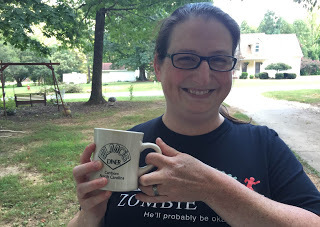
In short, it makes me feel love and loved, and that, my friends, is the right thing to drink from in the morning.
On Monday, the kids are back.
Something I'm trying this year is getting up earlier and giving myself a positive, well-paced morning to lead into the hectic melee we call the school day. This is challenging. Even after twenty years of teaching, I am not a morning person. The husband and I are trying morning yoga practice and I am trying breakfast.

I'm not a breakfast eater, generally, though I know that it is generally considered a good thing to do for your health and wellbeing. Food is unappealing to me first thing when I wake. And traditional breakfast foods (cereal, milk, yogurt, toast, eggs, etc.) are even less so. It's a little better if I don't eat breakfast foods. Leftover supper warmed up is something I'm trying. Protein heavy. I'm giving it a go, but I'm not a fan.
I am a fan of the hot drink varieties of caffeine though: coffee and tea. Especially tea. And I know that the experience is enhanced when you have the right mug to drink it out of. So, I'm mug shopping--in my own cabinets because I'm a teacher in North Carolina (that means I'm chronically broke because they pay peanuts here).
There are a few different things that make a mug perfect.
First, there's the weight. The mug should have some heft, so that you don't tip it over by just because you flicked your hand awkwardly reaching for the blueberries. But it can't be too heavy, where you end up settling it too heavily on the table and sloshing the liquid heaven onto your hand and tablecloth. Tea is much better INSIDE mama than OUTSIDE.
 Then there's the shape of rim and how it feel against your lips. I like one that's curved inward, so that when I lift the cup, the warm nirvana is guided down my gullet like it's riding a slide into wonderland. I don't like the ones that feel thin and plastic-y when they bump against my teeth. I really don't like the ones that curve outward, so that the liquid flows into the upper palate and ends up dribbling on my blouse.
Then there's the shape of rim and how it feel against your lips. I like one that's curved inward, so that when I lift the cup, the warm nirvana is guided down my gullet like it's riding a slide into wonderland. I don't like the ones that feel thin and plastic-y when they bump against my teeth. I really don't like the ones that curve outward, so that the liquid flows into the upper palate and ends up dribbling on my blouse.Feel in the hand is also important. I have arthritis, so my hands are often stiff and sore in the morning. I like a taller mug with enough surface area to wrap my fingers around and warm the swollen joints. I like a nice retention of heat that comes with thicker sides. Again, not the thin and delicate sort for me. They're pretty, but I don't like to hold them. I always feel like I will break them with my clumsiness (and often have done exactly that).
 Retention of heat in the drink itself is also vital. Mugs that are too large, especially the ones that widen towards the top, have too much surface area and the drink can become cold while you are still staring blankly at the sunlight dappling the tabletop and noticing the dust motes it reveals. By the time you remember to pick it up and sip--ew! cold tea. (Oddly, I love iced tea, but cannot countenance hot tea that has become cold).
Retention of heat in the drink itself is also vital. Mugs that are too large, especially the ones that widen towards the top, have too much surface area and the drink can become cold while you are still staring blankly at the sunlight dappling the tabletop and noticing the dust motes it reveals. By the time you remember to pick it up and sip--ew! cold tea. (Oddly, I love iced tea, but cannot countenance hot tea that has become cold).And lastly, there's the art. Whether it's caffeine humor, a picture of your kids, or just a nice pattern you like, the mug should lift your spirits when you look at it.
So, I found my perfect one. It's my Elmo's mug. It's a traditional diner mug, hefty but not heavy in my hands, large enough to warm my hands and shaped to keep my drink warm, too. It has that curve in the side that keeps my drink pouring in the right direction. And Elmo's is special. It's the first place my now-husband and I had breakfast together. It's the one restaurant choice guaranteed to please all four Bryants. Seeing the mug lifts my heart thinking about Sweetman's face smiling in the lovely morning sunlight through their long windows or my youngest giving me a chocolate chip pancake grin, or my eldest stealing my warm cinnamon apples and giving me a teasing look that says, "What? I'm completely innocent here."

In short, it makes me feel love and loved, and that, my friends, is the right thing to drink from in the morning.
Published on August 24, 2016 03:00
August 17, 2016
Guest Post: C. Hope Clark on Life Balance
It's my pleasure to hand over my blog today to C. Hope Clark. Mystery readers know her for her Edisto Island Mysteries; writers of all genres know her for her Funds for Writers newsletter. I invited Hope to talk to us about balancing a writing life with the rest of life now that she's where some of us still aspire to be: working full-time as a writer. ___________________________________________
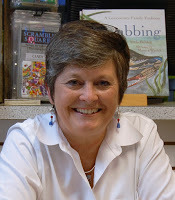 My fulltime job is that of a writer. At my appearances and signings, many people greet me with a wishful expression, and I know exactly what they are thinking. I wish I could stay home and write for a living. One twenty-something approached me not long ago and blurted, “Honey, you are living the dream. You are who I want to be.”Admittedly, I am living the writer’s dream, but it’s one that comes with responsibilities and coordination. It doesn’t take much for an untended dream to slide into a nightmare. My dream, however, isn’t self-sustaining. It requires maintenance. Every few months, I stop and analyze my schedule, goals, and purpose, because without attention to them, my dream takes off on tangents, even splintering into tasks that may or may not feed the dream, and can ultimately dismantle my days.I wanted to leave nine-to-five to write, to pursue a deep personal satisfying quest. However, I made a plan before taking the leap. While writing fulfilled me, I had sense enough to know that it also had to take care of financial obligations. So I developed a three-year plan to pay off debt, save for emergencies, and develop a work ethic of income writing versus creative writing, then at the end of three years, I took an early retirement at age 46. While I wanted to leave earlier, that three-year plan included qualifying for early retirement which gave me health insurance and a small pension that would always be there for a roof over my head. A necessary evil? Maybe. But in that three years, I also tested several writing avenues, weighing which would bring in the most income, which wouldn’t interfere with my novel-writing goals, and which would provide me with the best platform. I had an intense need to define a balance between responsibility and desire, getting everything I wanted out of my days without sabotaging my well-being.Errantly, we often think of a balanced life as being one we have to think less about. A laissez-faire mindset that deters regimen or structure. In reality, without some definition we lose balance because there is no weighing in of need and purpose. Our balance goes awry because we aren’t focused.I’ve been a fulltime writer for over a decade now, and I believe it’s worked because I periodically analyze my schedule, goals, and purpose, beginning with the last.
My fulltime job is that of a writer. At my appearances and signings, many people greet me with a wishful expression, and I know exactly what they are thinking. I wish I could stay home and write for a living. One twenty-something approached me not long ago and blurted, “Honey, you are living the dream. You are who I want to be.”Admittedly, I am living the writer’s dream, but it’s one that comes with responsibilities and coordination. It doesn’t take much for an untended dream to slide into a nightmare. My dream, however, isn’t self-sustaining. It requires maintenance. Every few months, I stop and analyze my schedule, goals, and purpose, because without attention to them, my dream takes off on tangents, even splintering into tasks that may or may not feed the dream, and can ultimately dismantle my days.I wanted to leave nine-to-five to write, to pursue a deep personal satisfying quest. However, I made a plan before taking the leap. While writing fulfilled me, I had sense enough to know that it also had to take care of financial obligations. So I developed a three-year plan to pay off debt, save for emergencies, and develop a work ethic of income writing versus creative writing, then at the end of three years, I took an early retirement at age 46. While I wanted to leave earlier, that three-year plan included qualifying for early retirement which gave me health insurance and a small pension that would always be there for a roof over my head. A necessary evil? Maybe. But in that three years, I also tested several writing avenues, weighing which would bring in the most income, which wouldn’t interfere with my novel-writing goals, and which would provide me with the best platform. I had an intense need to define a balance between responsibility and desire, getting everything I wanted out of my days without sabotaging my well-being.Errantly, we often think of a balanced life as being one we have to think less about. A laissez-faire mindset that deters regimen or structure. In reality, without some definition we lose balance because there is no weighing in of need and purpose. Our balance goes awry because we aren’t focused.I’ve been a fulltime writer for over a decade now, and I believe it’s worked because I periodically analyze my schedule, goals, and purpose, beginning with the last.
Purpose
While my main purpose is to write, I learned early on that an equal purpose is to be financially safe. A writer is not successful without both. So instead of saying my dream is to write fulltime, I understand that my dream is maintaining the ability to write fulltime. Every month I study the time spent on writing for short-term income (freelancing), writing for long-term income (novels), appearances, and self-promotion. They must balance to sustain my fulltime passion, and yes, that means sometimes I write less creative work to bring in dollars in order to buy me time to delve into my novels. Without dissecting this balance regularly, the scales quickly tip in the wrong direction. Too much income writing robs me of my creativity. Too much creative writing robs me of income. My writing is a career, so it takes leveling both left-brain and right-brain tasks to allow me to maintain a fulltime dream.
Goals
Novels have multiple deadlines prior to publication, and so while they do not bring in income, they have needs. A novelist also plans several books ahead, meaning a multi-year, long-range plan, and until those novels are published and bringing in income, a certain number of short-term goals must be met to pay bills. This analysis of long-term and short-term goals takes place monthly so I do not stray.
Schedule
While goal-tending is great, day-to-day activity isn’t so precise or easy to monitor. But I left the nine-to-five partly because of a suffocating regimen, and I do not want to replace one rigid structure with another. So I go out of my way not to force-feed myself a daily schedule. Monthly reviews of my work, covering creativity and entrepreneurialship, are sufficient for me. In the day to day, I allow a more relaxed environment. I rise when my clock tells me to, and I go to sleep when my clock beckons. My work may make for five-hour days, or fifteen, depending upon my energy and enthusiasm, but my work week is a forty-hour minimum. The greatness about being a stay-at-home writer is that I can deem what makes for a satisfying day without worrying about a clock or overseer. To avoid burn-out, I take breaks to walk the dogs, tend the chickens, and garden. I can make doctor appointments in the day without missing work, and I can take a break and visit the zoo with a grandson in the middle of the afternoon before it gets crowded. I can work until three AM knowing I can sleep in. I can stop and cook dinner, watch a mystery on television, then return to the job because it’s just down the hall. While I give myself Saturday as a day off, I’ve learned that I love my work so much that I rarely reach the end of the day without checking for replies from publishers, editors, and readers.
Balance can’t be too loose or too strict, but it’s critical to feed the passion and the self-sustainability of a writing career and find that perfect level. Give yourself enough of a structure that you feel focused, but enough detachment to feel you’re not tied down. Without a doubt I’m living the dream, and with the balance I’ve achieved, that dream will take me as long as I wish.
BIO: C. Hope Clark loves living her writing dream and will continue to the end of her days. She just released Echoes of Edisto, book three in The Edisto Island Mysteries, and has many books planned in her long-term goals. www.chopeclark.com
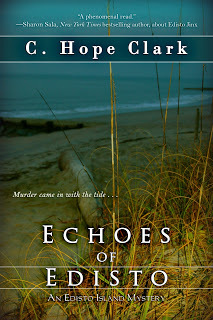
 My fulltime job is that of a writer. At my appearances and signings, many people greet me with a wishful expression, and I know exactly what they are thinking. I wish I could stay home and write for a living. One twenty-something approached me not long ago and blurted, “Honey, you are living the dream. You are who I want to be.”Admittedly, I am living the writer’s dream, but it’s one that comes with responsibilities and coordination. It doesn’t take much for an untended dream to slide into a nightmare. My dream, however, isn’t self-sustaining. It requires maintenance. Every few months, I stop and analyze my schedule, goals, and purpose, because without attention to them, my dream takes off on tangents, even splintering into tasks that may or may not feed the dream, and can ultimately dismantle my days.I wanted to leave nine-to-five to write, to pursue a deep personal satisfying quest. However, I made a plan before taking the leap. While writing fulfilled me, I had sense enough to know that it also had to take care of financial obligations. So I developed a three-year plan to pay off debt, save for emergencies, and develop a work ethic of income writing versus creative writing, then at the end of three years, I took an early retirement at age 46. While I wanted to leave earlier, that three-year plan included qualifying for early retirement which gave me health insurance and a small pension that would always be there for a roof over my head. A necessary evil? Maybe. But in that three years, I also tested several writing avenues, weighing which would bring in the most income, which wouldn’t interfere with my novel-writing goals, and which would provide me with the best platform. I had an intense need to define a balance between responsibility and desire, getting everything I wanted out of my days without sabotaging my well-being.Errantly, we often think of a balanced life as being one we have to think less about. A laissez-faire mindset that deters regimen or structure. In reality, without some definition we lose balance because there is no weighing in of need and purpose. Our balance goes awry because we aren’t focused.I’ve been a fulltime writer for over a decade now, and I believe it’s worked because I periodically analyze my schedule, goals, and purpose, beginning with the last.
My fulltime job is that of a writer. At my appearances and signings, many people greet me with a wishful expression, and I know exactly what they are thinking. I wish I could stay home and write for a living. One twenty-something approached me not long ago and blurted, “Honey, you are living the dream. You are who I want to be.”Admittedly, I am living the writer’s dream, but it’s one that comes with responsibilities and coordination. It doesn’t take much for an untended dream to slide into a nightmare. My dream, however, isn’t self-sustaining. It requires maintenance. Every few months, I stop and analyze my schedule, goals, and purpose, because without attention to them, my dream takes off on tangents, even splintering into tasks that may or may not feed the dream, and can ultimately dismantle my days.I wanted to leave nine-to-five to write, to pursue a deep personal satisfying quest. However, I made a plan before taking the leap. While writing fulfilled me, I had sense enough to know that it also had to take care of financial obligations. So I developed a three-year plan to pay off debt, save for emergencies, and develop a work ethic of income writing versus creative writing, then at the end of three years, I took an early retirement at age 46. While I wanted to leave earlier, that three-year plan included qualifying for early retirement which gave me health insurance and a small pension that would always be there for a roof over my head. A necessary evil? Maybe. But in that three years, I also tested several writing avenues, weighing which would bring in the most income, which wouldn’t interfere with my novel-writing goals, and which would provide me with the best platform. I had an intense need to define a balance between responsibility and desire, getting everything I wanted out of my days without sabotaging my well-being.Errantly, we often think of a balanced life as being one we have to think less about. A laissez-faire mindset that deters regimen or structure. In reality, without some definition we lose balance because there is no weighing in of need and purpose. Our balance goes awry because we aren’t focused.I’ve been a fulltime writer for over a decade now, and I believe it’s worked because I periodically analyze my schedule, goals, and purpose, beginning with the last. Purpose
While my main purpose is to write, I learned early on that an equal purpose is to be financially safe. A writer is not successful without both. So instead of saying my dream is to write fulltime, I understand that my dream is maintaining the ability to write fulltime. Every month I study the time spent on writing for short-term income (freelancing), writing for long-term income (novels), appearances, and self-promotion. They must balance to sustain my fulltime passion, and yes, that means sometimes I write less creative work to bring in dollars in order to buy me time to delve into my novels. Without dissecting this balance regularly, the scales quickly tip in the wrong direction. Too much income writing robs me of my creativity. Too much creative writing robs me of income. My writing is a career, so it takes leveling both left-brain and right-brain tasks to allow me to maintain a fulltime dream.
Goals
Novels have multiple deadlines prior to publication, and so while they do not bring in income, they have needs. A novelist also plans several books ahead, meaning a multi-year, long-range plan, and until those novels are published and bringing in income, a certain number of short-term goals must be met to pay bills. This analysis of long-term and short-term goals takes place monthly so I do not stray.
Schedule
While goal-tending is great, day-to-day activity isn’t so precise or easy to monitor. But I left the nine-to-five partly because of a suffocating regimen, and I do not want to replace one rigid structure with another. So I go out of my way not to force-feed myself a daily schedule. Monthly reviews of my work, covering creativity and entrepreneurialship, are sufficient for me. In the day to day, I allow a more relaxed environment. I rise when my clock tells me to, and I go to sleep when my clock beckons. My work may make for five-hour days, or fifteen, depending upon my energy and enthusiasm, but my work week is a forty-hour minimum. The greatness about being a stay-at-home writer is that I can deem what makes for a satisfying day without worrying about a clock or overseer. To avoid burn-out, I take breaks to walk the dogs, tend the chickens, and garden. I can make doctor appointments in the day without missing work, and I can take a break and visit the zoo with a grandson in the middle of the afternoon before it gets crowded. I can work until three AM knowing I can sleep in. I can stop and cook dinner, watch a mystery on television, then return to the job because it’s just down the hall. While I give myself Saturday as a day off, I’ve learned that I love my work so much that I rarely reach the end of the day without checking for replies from publishers, editors, and readers.
Balance can’t be too loose or too strict, but it’s critical to feed the passion and the self-sustainability of a writing career and find that perfect level. Give yourself enough of a structure that you feel focused, but enough detachment to feel you’re not tied down. Without a doubt I’m living the dream, and with the balance I’ve achieved, that dream will take me as long as I wish.
BIO: C. Hope Clark loves living her writing dream and will continue to the end of her days. She just released Echoes of Edisto, book three in The Edisto Island Mysteries, and has many books planned in her long-term goals. www.chopeclark.com

Published on August 17, 2016 03:00
August 10, 2016
Fangirling: Flash, Season 1, Episode 17
Summer is media time for me. I can't really watch TV much during the school year, not and keep up with teaching, mothering and writing. So, I binge in the summer. Netflix is my bud.
I watched all of Stranger Things, two seasons of Penny Dreadful, most of season 6 of The Walking Dead, and half of a season of Jane the Virgin so far this summer. I've also watched a few episodes of The Flash (I'm still in season 1 because the husband and I are trying to watch it together--and he's not got the summer off).
I really want to love The Flash. It's my kind of show. There's so much that is right about it.
 Barry Allen (played by Grant Gustin) is perfect. He's youthful without being a child, romantic without being sappy, idealistic without being an idiot, funny without being a clown, and vulnerable without being a wimp. Even when the writing goes all emo on me and Barry is handed loser lines to speak and weak plots, Gustin makes a silk purse out of that sow's ear because he gets the heart of the character.
Barry Allen (played by Grant Gustin) is perfect. He's youthful without being a child, romantic without being sappy, idealistic without being an idiot, funny without being a clown, and vulnerable without being a wimp. Even when the writing goes all emo on me and Barry is handed loser lines to speak and weak plots, Gustin makes a silk purse out of that sow's ear because he gets the heart of the character.
What I love about the character in this iteration is that, in spite of tragedy and bad luck in his past, he still has heart. He hasn't become bitter or vengeful. Even as he struggles to deal with the mystery of what happened to his mother, he doesn't turn a Batman sort of dark.
I also love Joe West (played by Jesse L. Martin). He's a rare creation in television history: a good father. There's no sign of Mrs. West so far in the story, so he appears to have been doing this alone, at least for a while, and raising an extra foster son with love as well as his own biological daughter. So, a good, black, single dad. Are there any more of those anywhere on television? Even rarer, he seems to have a clue when it comes to parenting adult children.
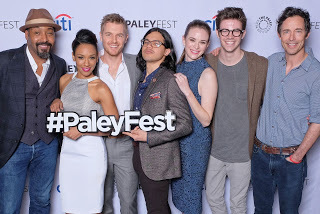
Harrison Wells (played by Tom Cavanagh) is a complex villain and I love how his contradictory motivations are coming into play. The man who does good things, but has a dark over-riding purpose--and this particular episode (season 1, episode 17) furthers that story and gives us an explanation we've long been lacking, while still leaving mystery.
Cisco (Carolos Valdes) has way more personality than the science guy is usually allowed. And he's a male character allowed to be emotional!
I wish I could love the other characters as much. But the women in this show. Gah! Have these writers ever met a real woman?
Caitlin Snow, science girl (played by Danielle Panabaker) isn't outright offensive, but she's also not very interesting. When it's time for the science support team to act, it's always Cisco's skills that save the day. She's supposed to be a brilliant scientist in her own right, but we never get to see her be one. She's just monitoring and communicating, supporting, but not actively problem solving. She might as well be the secretary in a 1950s show. The best she gets is a little heart to heart talk with Barry from time to time. Even when we brought her long lost back-from-the-dead beau in, they still only gave her an emotional range of "bravely not crying" to "crying."
And Iris. Good G-d, I can't stand Iris West (played by Candice Patton). The writers have done women the world over a disservice in making the object of Barry's affection a selfish woman who toys with the emotions of others. I think I'd like her better if she was aware of her manipulations and doing it on purpose, but no, they don't even give her that. She's not manipulative because she enjoys it or as some kind of power play. It's supposed to be unconscious.
She's so blind to the inner workings of her own heart, that she seems TSTL (too stupid to live). She reminds me a lot of Bella from the shiny vampire series…and I hated her, too. Good people just don't string other people along like that--they confront the feelings or they cut off contact. If I were writing this show, Barry would realize that any number of women would be better for him than Iris and move past his little boy crush for good.
And the way the men in the show (Dad, Barry, and Boyfriend) condescend to her by lying to her and misleading her under the guise of protecting her because they love her…what year is this again? They might as well pat her on the butt and tell her her not to worry her pretty little head about man stuff.
The portrayal of women isn't the only flaw in the show, unfortunately. There are also huge plot holes, all the time. Like, if the Flash just "flashed" he could win the day, but for some reason, he just…doesn't. As a superhero writer myself, I recognize that it must be difficult to write good challenges for a speedster character, but there have been many cases where it felt like the writers phoned in the plot when they were on a bender on a fraternity reunion weekend, ignoring completely obvious solutions to the problem and hoping you wouldn't notice through the haze of relationship drama.
That's why I was so thrilled with Season 1, Episode 17: Tricksters. For once, it felt all right. It was so good! In a show that's all about the breaking of the fourth wall and meta-moment Easter eggs, this episode was amazeballs.
So, first off, we've got Barry's dad, Henry, played by John Wesley Shipp who played the Flash in the 1990s series. He's been there the whole series, but he gets more screen time in this episode to enjoy that meta-goodness. Then, we've got special guest Mark Hamill as The Trickster. Mark Hamill played the Trickster in the 1990s show, too. They even work in footage from that 1990s performance in some stills and showing his costume.
And the very very very best part?
Mark Hamill, in his best villainous whisper, honed from years of voice work in superhero cartoons, references his Star Wars history at the same time by announcing, "I am your father!" I thought my geek heart would burst with joy!
If only all the episodes could be this good! So much potential…so not fully realized.
I watched all of Stranger Things, two seasons of Penny Dreadful, most of season 6 of The Walking Dead, and half of a season of Jane the Virgin so far this summer. I've also watched a few episodes of The Flash (I'm still in season 1 because the husband and I are trying to watch it together--and he's not got the summer off).
I really want to love The Flash. It's my kind of show. There's so much that is right about it.
 Barry Allen (played by Grant Gustin) is perfect. He's youthful without being a child, romantic without being sappy, idealistic without being an idiot, funny without being a clown, and vulnerable without being a wimp. Even when the writing goes all emo on me and Barry is handed loser lines to speak and weak plots, Gustin makes a silk purse out of that sow's ear because he gets the heart of the character.
Barry Allen (played by Grant Gustin) is perfect. He's youthful without being a child, romantic without being sappy, idealistic without being an idiot, funny without being a clown, and vulnerable without being a wimp. Even when the writing goes all emo on me and Barry is handed loser lines to speak and weak plots, Gustin makes a silk purse out of that sow's ear because he gets the heart of the character.What I love about the character in this iteration is that, in spite of tragedy and bad luck in his past, he still has heart. He hasn't become bitter or vengeful. Even as he struggles to deal with the mystery of what happened to his mother, he doesn't turn a Batman sort of dark.
I also love Joe West (played by Jesse L. Martin). He's a rare creation in television history: a good father. There's no sign of Mrs. West so far in the story, so he appears to have been doing this alone, at least for a while, and raising an extra foster son with love as well as his own biological daughter. So, a good, black, single dad. Are there any more of those anywhere on television? Even rarer, he seems to have a clue when it comes to parenting adult children.

Harrison Wells (played by Tom Cavanagh) is a complex villain and I love how his contradictory motivations are coming into play. The man who does good things, but has a dark over-riding purpose--and this particular episode (season 1, episode 17) furthers that story and gives us an explanation we've long been lacking, while still leaving mystery.
Cisco (Carolos Valdes) has way more personality than the science guy is usually allowed. And he's a male character allowed to be emotional!
I wish I could love the other characters as much. But the women in this show. Gah! Have these writers ever met a real woman?
Caitlin Snow, science girl (played by Danielle Panabaker) isn't outright offensive, but she's also not very interesting. When it's time for the science support team to act, it's always Cisco's skills that save the day. She's supposed to be a brilliant scientist in her own right, but we never get to see her be one. She's just monitoring and communicating, supporting, but not actively problem solving. She might as well be the secretary in a 1950s show. The best she gets is a little heart to heart talk with Barry from time to time. Even when we brought her long lost back-from-the-dead beau in, they still only gave her an emotional range of "bravely not crying" to "crying."
And Iris. Good G-d, I can't stand Iris West (played by Candice Patton). The writers have done women the world over a disservice in making the object of Barry's affection a selfish woman who toys with the emotions of others. I think I'd like her better if she was aware of her manipulations and doing it on purpose, but no, they don't even give her that. She's not manipulative because she enjoys it or as some kind of power play. It's supposed to be unconscious.
She's so blind to the inner workings of her own heart, that she seems TSTL (too stupid to live). She reminds me a lot of Bella from the shiny vampire series…and I hated her, too. Good people just don't string other people along like that--they confront the feelings or they cut off contact. If I were writing this show, Barry would realize that any number of women would be better for him than Iris and move past his little boy crush for good.
And the way the men in the show (Dad, Barry, and Boyfriend) condescend to her by lying to her and misleading her under the guise of protecting her because they love her…what year is this again? They might as well pat her on the butt and tell her her not to worry her pretty little head about man stuff.
The portrayal of women isn't the only flaw in the show, unfortunately. There are also huge plot holes, all the time. Like, if the Flash just "flashed" he could win the day, but for some reason, he just…doesn't. As a superhero writer myself, I recognize that it must be difficult to write good challenges for a speedster character, but there have been many cases where it felt like the writers phoned in the plot when they were on a bender on a fraternity reunion weekend, ignoring completely obvious solutions to the problem and hoping you wouldn't notice through the haze of relationship drama.
That's why I was so thrilled with Season 1, Episode 17: Tricksters. For once, it felt all right. It was so good! In a show that's all about the breaking of the fourth wall and meta-moment Easter eggs, this episode was amazeballs.
So, first off, we've got Barry's dad, Henry, played by John Wesley Shipp who played the Flash in the 1990s series. He's been there the whole series, but he gets more screen time in this episode to enjoy that meta-goodness. Then, we've got special guest Mark Hamill as The Trickster. Mark Hamill played the Trickster in the 1990s show, too. They even work in footage from that 1990s performance in some stills and showing his costume.
And the very very very best part?
Mark Hamill, in his best villainous whisper, honed from years of voice work in superhero cartoons, references his Star Wars history at the same time by announcing, "I am your father!" I thought my geek heart would burst with joy!
If only all the episodes could be this good! So much potential…so not fully realized.
Published on August 10, 2016 03:00



